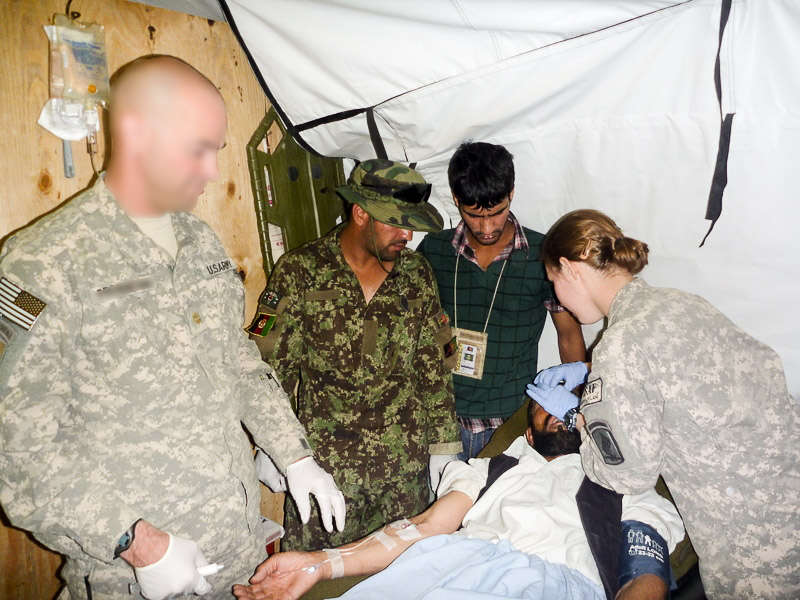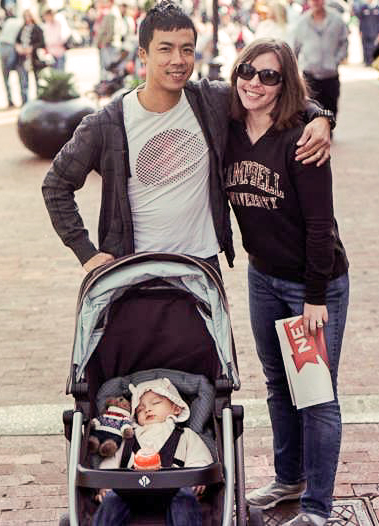Amber Huynh – Seattle Class 49
Four years as a US Army medic has given Amber Huynh a particular perspective on her physician assistant training at MEDEX Northwest. “You know, I had an interesting time during deployment,” she tells us. “So to me, if I could make it through that, then I can make it through anything. The school part is fun.”
The thing you notice upon meeting Amber is how even tempered she is. She is modest about her accomplishments, yet appears to know exactly where she’s heading. Such wasn’t always the case. “I had four years of college, no degree and a really crappy part time job,” she says. So Amber walked into an Army recruiter’s office enlisted to become a medic.
Her first duty station was in Germany with the 173rd Airborne Brigade Combat Team. From there she deployed to Afghanistan with them.
“I spent the first six months of the deployment attached to 1-503rd, an infantry unit on FOB (Forward Operating Base) Airborne in the Wardak Province.” she says. Amber provided medical care not only to US soldiers, but also Afghan civilians, Afghan National Army, and Afghan National Police. Essentially, she provided primary care to whoever came through the door—illnesses and injuries.
The last six months of Amber’s deployment were on FOB Shank in the Logar Province. “We actually had a surgical team there,” she says. The multi-tent treatment facility included a Forward Surgical Team (FST) that was capable of managing serious trauma. She gained experience in a different setting in the patient hold. “It was inpatient, but usually stable. If there was a mass casualty event, then I had some expectant patients.”
At the conclusion of four years she decided it was time for the next phase of her life. Although Amber appreciated her military experience, she wanted to pursue her career as a physician assistant.
“As a medic, I worked for multiple PAs. I was fortunate enough to work for several individuals who liked to teach and treat and who really demystified medicine for me.”
While using the GI Bill to complete her undergraduate degree, Amber worked as a medical assistant in urgent care. She also learned that the training she acquired as a medic did not translate into the private sector. “You have all these skills that require civilian credentials, and you don’t necessarily get the credentials formally from the military,” she says. “In the military you do your own examinations, you do your own evaluations. You might order labs and come up with the treatment plan. If there was a question I could verify with one of our physician assistants.”

When her husband’s military assignment took the family to Washington State, she began the application process for MEDEX Northwest. To broaden her experience, she took a position as a medical assistant in an otolaryngology clinic while applying to the program. “That was the first time that I had worked in a surgical subspecialty,” she tells us. “That was really cool. It was completely different than primary care.”
Amber chose the MEDEX Seattle site because it offers a master’s degree. Being so close to Joint Base Lewis-McChord, the MEDEX Tacoma site focuses heavily on serving veterans. But it remains a bachelor’s only site until 2020 when the entire physician assistant profession converts to master’s exclusively.
Now halfway through her didactic year, we ask how things are going.
“I really like it,” she says. “Having worked full time and in the military, you have deployments, and you have these 24-hour shifts all the time. So it’s nice to just be a student who has six hours a day in class and then you’re free to go. There’s so much more autonomy. It’s also nice to have a break from the working world. And I know what I’m working towards.”

Amber appreciates the consideration given to veterans at MEDEX Northwest. Amber’s husband is still active duty and was reassigned to Washington. She had already been accepted into another PA program and had to make a choice. “I wanted to keep my family together,” she says. And while the other PA school was very welcoming, they failed to recognize the challenges faced by veterans and their families.
Amber finds that the MEDEX recognizes the particular culture of military veterans. This even translates into the classroom where students—veterans and civilians alike—discuss the issues facing the veteran students. “I just don’t think you’re going to get that in other programs, honestly,” she says. “It’s very reassuring, and it’s just a lot of support. There’s a lot of faculty who are veterans here. And they really get it.”
For Seattle Class 49, graduation is August of 2017, with the national certification exam to follow. Amber envisions working in family medicine but, at the same time, is open to other possibilities. “I like a bit of everything,” she tells us.
Standing at the precipice of PA school, Amber is already thinking of ways to pay it forward. “It’s exciting to know I’m going to be in that kind of role where I can really make a difference,” she says. “I want to be able to do the kinds of things that I was starting to be able to do, but to understand more of it. It’s just so cool.”

